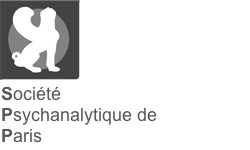| Material Type: | Article : printed text |
| Title: | Récits de vie (1998) |
| Authors: | / Jean GILLIBERT , Author |
| In : | Revue française de psychanalyse (vol. 62, n° 3, 1998) |
| Article on page: | pp. 731-740 (10 pages) |
| General note: | Numérisé sur Gallica.bnf.fr |
| Languages: | French |
| Keywords : | Histoire ; Récit ; Vie ; Personne ; Tragédie ; Psychose |
| Abstract: |
-- Résumé : La psychanalyse des cinquante dernières années s'est exclusivement intéressée aux pouvoirs signifiants de la parole et des fantasmes. Elle n'a pas - ou peu - tenté de réfléchir au " dire ", qui n'est ni la parole, ni le dit ou le non-dit. Le narratif a une vie liée à l'histoire mythique inventée par Freud : le meurtre du père qui fait que l'homme naît " coupable " et coupable pulsionnellement. Ce récit " historique " doit se narrer ; la rencontre oedipienne - qui n'est pas mythique chez Freud, mais dynamique et évolutive - doit présider au rétablissement, mais encore plus à son désistement éthique. Par la règle fondamentale, dite d'association libre, le récit narratif découvre son devenir. Ce qui est " vrai " n'est plus forcément historique. Le récit ne recrée par l'événement (pulsionnel, traumatique), il ne le symbolise ni ne le métaphorise non plus. Vrai ne veut pas dire arrivé... Et Freud a voulu confondre, par laïcité d'esprit, le vrai (le meurtre du père) avec l'historique. On ne sait jamais ce qu'on va dire, telle est la finalité de l'association. Ce n'est donc pas le récit de l'événement vrai qui est essentiel, mais le vrai récit de l'événement. -- Abstract : In the last fifty years psychoanalysis has preoccupied itself exclusively with the signifying powers of speech and of fantasies. It has not, or at least very little, attempted to reflect on " saying " which is neither speech, nor the said nor unsaid. The life of the narrative is linked to the mythical history invented by Freud : the murder of the father, which says that men are born " guilty " and guilty in a way that concerns the drive. This " historical " account must be narrated ; the Oedipical encounter, which according or Freud is not mythical but dynamic and developing, must preside over its reestablishment but even more so over its ethical withdrawal. Via the fundamental rule, known as free association, the narrative account must discover what it will become. What is " true " is no longer necessarily historical. The account does not recreate the event (drive-linked, traumatic), neither does it symbolise nor metaphorise it. Truth does not imply that something has happened... and Freud, from a secularist standpoint, wanted to make what is true (the murder of the father) and what is historical synonymous. We never know what we are going to say, this is the true end of association. It is thus not account of the true event that is essential but the true account of the event. |
Copies (6)
| Barcode | Call number | Media type | Location | Section | Status |
|---|---|---|---|---|---|
| 20000306 | RFP | Revue | BSF Paris | Salle de lecture : Revues en français | Available |
| 20000305 | RFP | Revue | BSF Paris | ψ Réserve : Périodiques | Not for loan |
| 50002854 | B01 | Revue | Lyon | Bib. GLPRA | Not for loan |
| 50004175 | B05 | Revue | Lyon | Bib. GLPRA | Available |
| 06002152 | RFP | Revue | St-Etienne BFP | Bib. Francis Pasche | Available |
| 08000990 | ARM/05 | Revue | Toulouse | Bib. Toulouse | Available |





